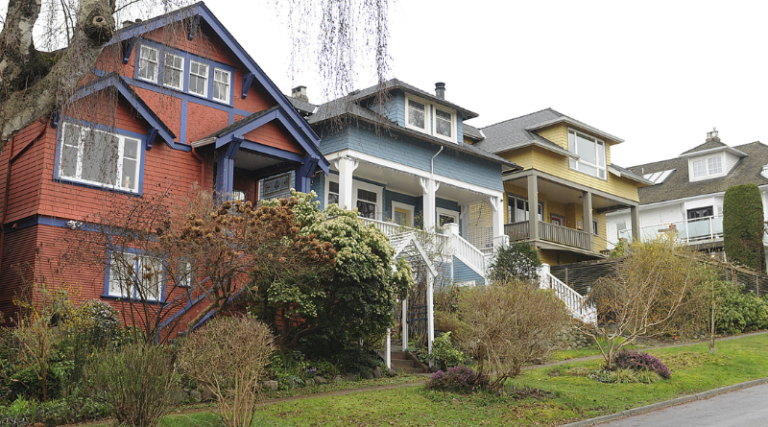The British Columbia Assessment Authority (BCAA) has recently announced that the property assessments for 2023 have been revised and updated. This is the first significant revision since 2016 and it means that homeowners in B.C. may be facing changes in their property assessments when they receive them this year. We will find out. That is what you need to know about these changes. Also, how they could affect your home assessment value in the coming years.
What is a B.C. Property Assessment Update?
This Property Assessment ensures that all properties in the province are fairly taxed. The B.C. government conducts regular property assessments. Your property value is based on many factors. Including, its location, size, and any improvements that have been made to it. Your property taxes are calculated using your assessment value, so it’s important to make sure that your assessment is accurate.
If you think that your assessment value is too high, you can contact your municipality to request a review. You will need to provide evidence. To support your claim that the value is too high. The municipality will then review your assessment and may revise it if they agree with you.
It’s also important to keep in mind that property values can change over time. So even if your assessment value is accurate today. It may not be accurate in the future. If you have any concerns about your assessment value. Be sure to contact your municipality. So that they can help you understand how your property taxes are calculated. And what you can do if you think your assessment is too high.
What are BC’s property assessment values?
As of January 1, 2023, the British Columbia Assessment Authority (BCAA) has updated property assessment values across the province. The new values reflect market conditions as of July 1, 2019.
For most homeowners in BC, their property assessments will increase. The average increase for residential properties is 5.6%. However, some areas of the province saw greater increases than other areas. For example – In Metro Vancouver, the average increase is 8.1%.
If you’re curious about how your property’s assessment value compares to others in your neighborhood, you can look it up on the BCAA website. Just enter your address and you’ll be able to see your assessment value, as well as a breakdown of how your property was valued (e.g. land value, improvements value, etc.).
It’s important to note that your property taxes are not automatically increased just because your assessment value goes up. Property taxes are set by municipalities and regional districts. They use a tax rate to calculate. How much each homeowner should pay based on their assessed value? So, even if your assessment value goes up, your property taxes may not necessarily increase by the same amount.
How to Appeal Your Assessment
If you believe your assessment is not accurate, you can appeal it. If you want to make an appeal. You can make it online, by mail, and in person. The deadline to appeal is January 31st.
To appeal online, go to the BC Assessment website and create an account. Once you log in, select “File an Appeal” from the left-hand menu. You need to provide your property address, roll number, and contact information.
You will then have the opportunity to select what type of appeal you would like to file:
-A change in classification
-A value change for a specific year
-An exclusion from tax rolls
-Other
After you have selected the type of appeal. You will be able to provide additional information and upload supporting documentation. Once you have submitted your appeal, BC Assessment will review it and determine if a hearing is required. If a hearing is not required, they will send you a decision letter with their determination. If a hearing is required. They will notify you about the hearing details.
Why You Should Appeal Your Assessment
If you think your assessment is too high, you should appeal it. If you don’t appeal, you could be overpaying on your property taxes for the year.
The deadline to appeal your assessment is January 31st. The first step is to contact your municipality. To find out how to file an appeal.
There are a few different ways to appeal your assessment. You can either do it yourself. You can hire someone for your work.
If you think that you can do it. Then, there are a few things you should know. First, make sure you have all the documents about your property. You’ll need to know things like its square footage, the lot size, and any special features or upgrades that have been made.
You’ll also need to be familiar with the BC Assessment website and how to use it. This website has a lot of helpful information about appealing to your assessment.
Once you have all the information. then the next step is to fill out the Appeal Application Form (Form A). This form is available on the BC Assessment website or from your municipality.
After you’ve filled out the form, you’ll need to submit it along with any supporting documentation by the deadline of January 31st.
Conclusion
Property assessment values in B.C. are an important part of the property purchasing and selling process. So, It is important that you need to be accurate and up-to-date. The revised assessments for 2023 will ensure that buyers, sellers, lenders, and others involved in real estate transactions throughout B.C. have more dependable information to rely on when making decisions about their investments. With this update to the province’s property assessment system, we can be sure that everyone has access to reliable data when considering buying or selling a home in British Columbia.


